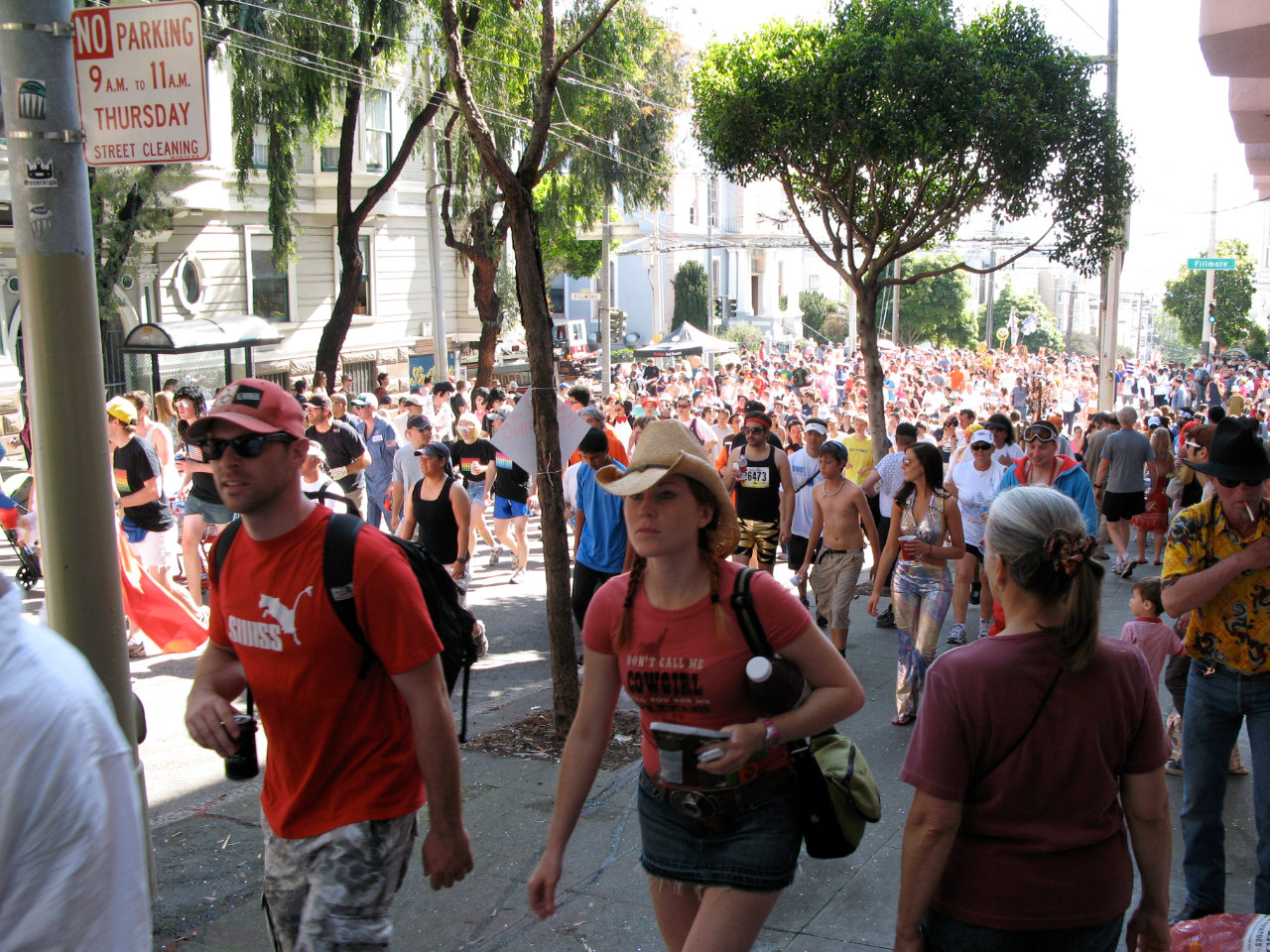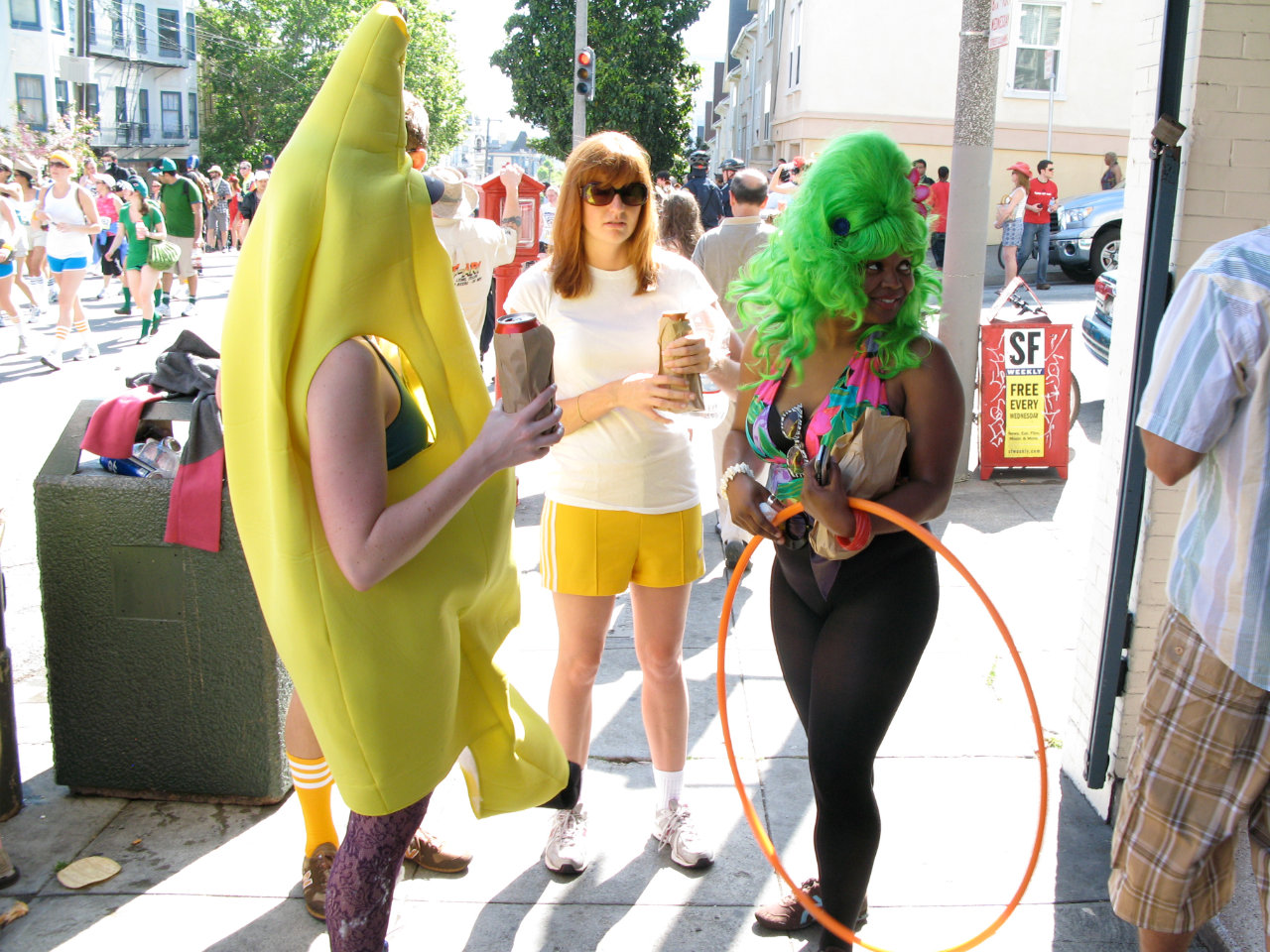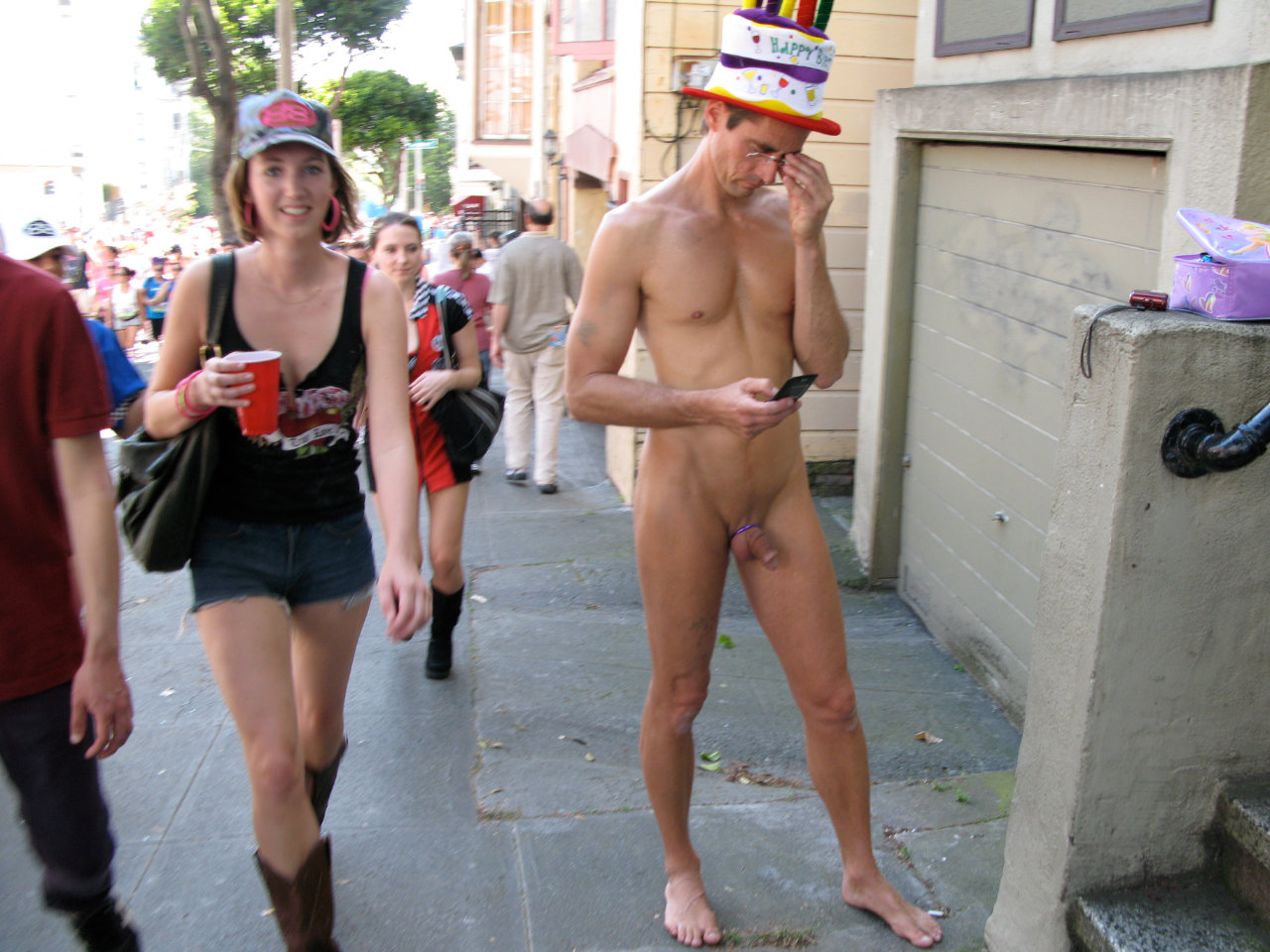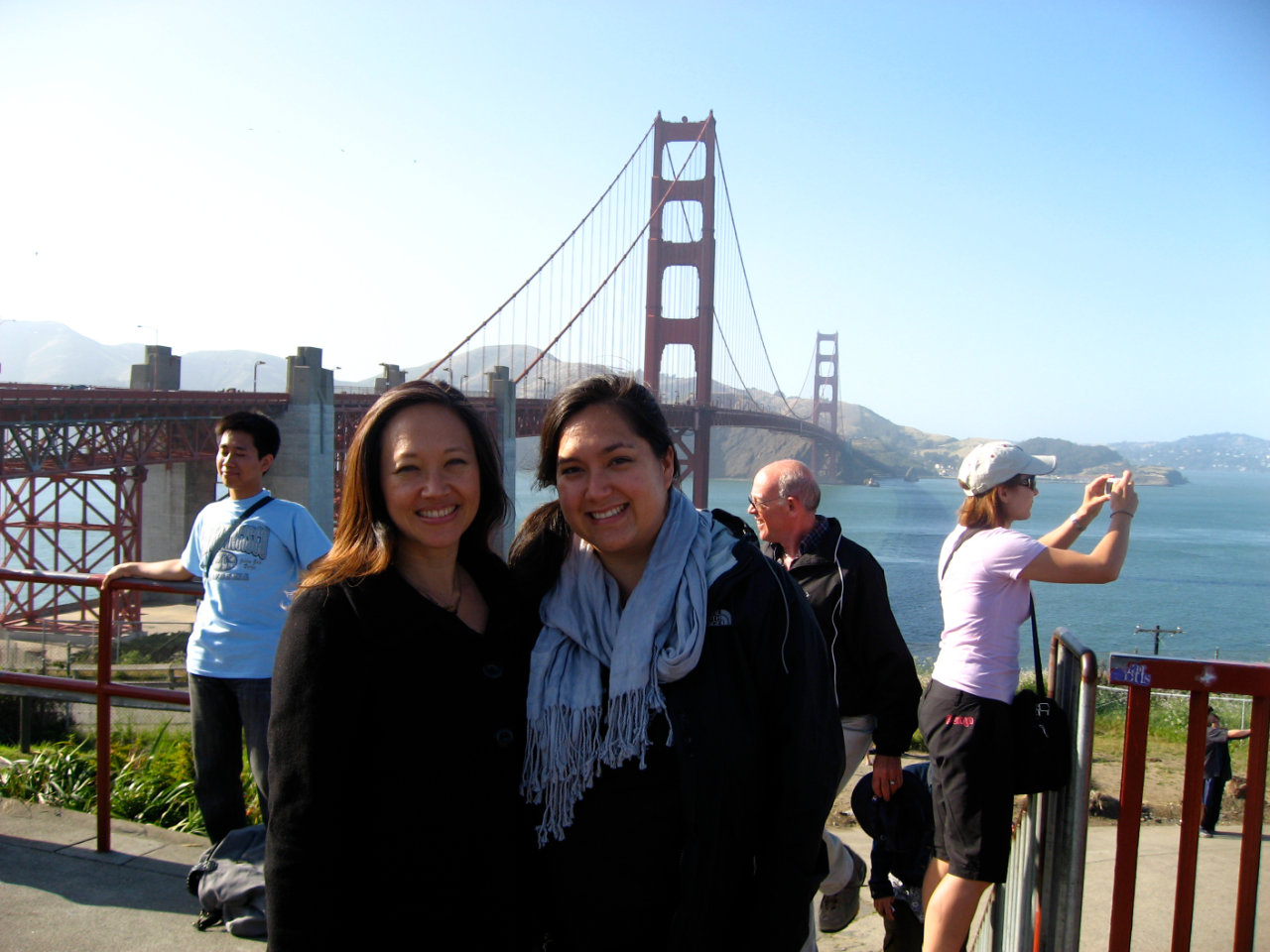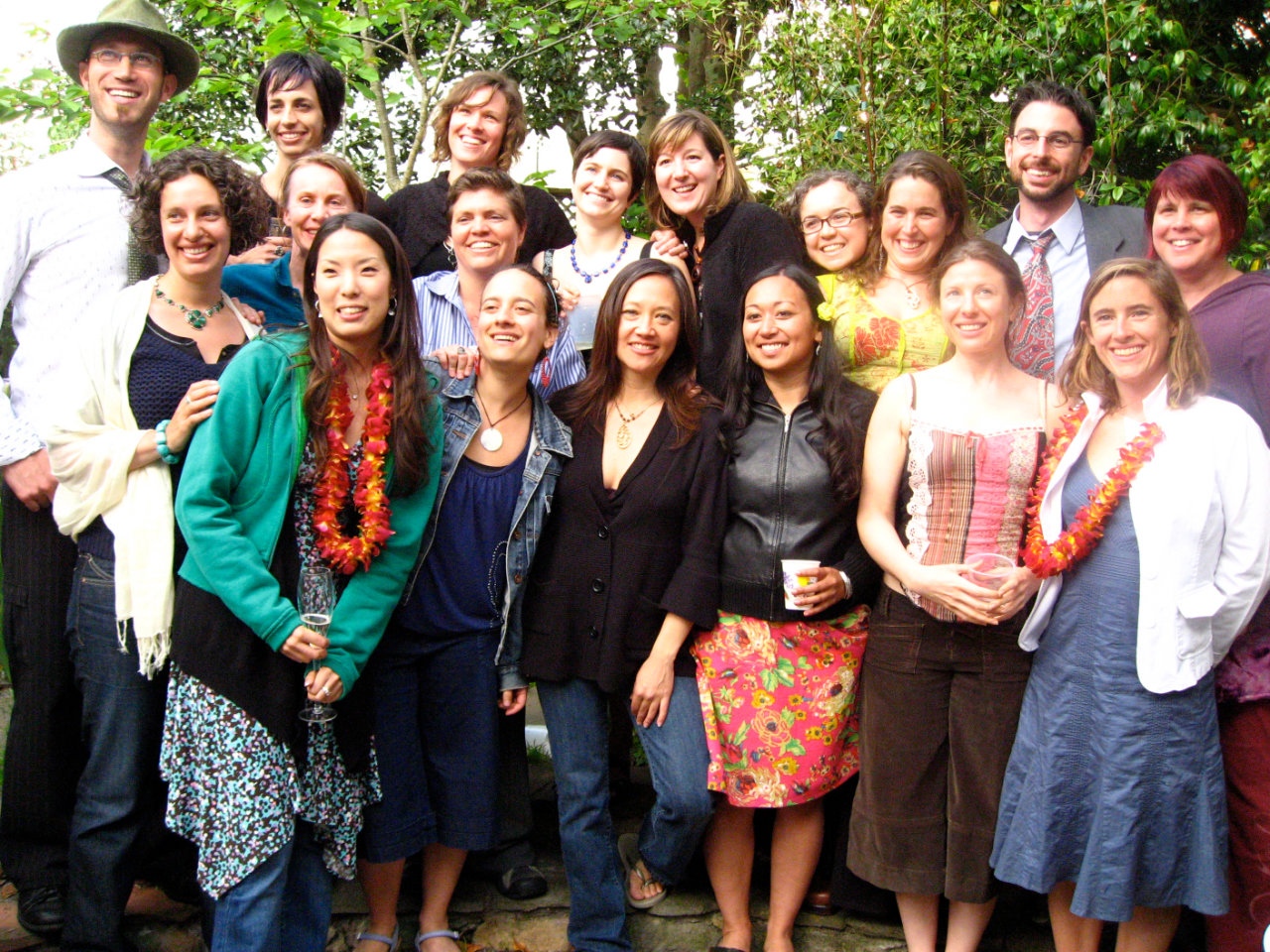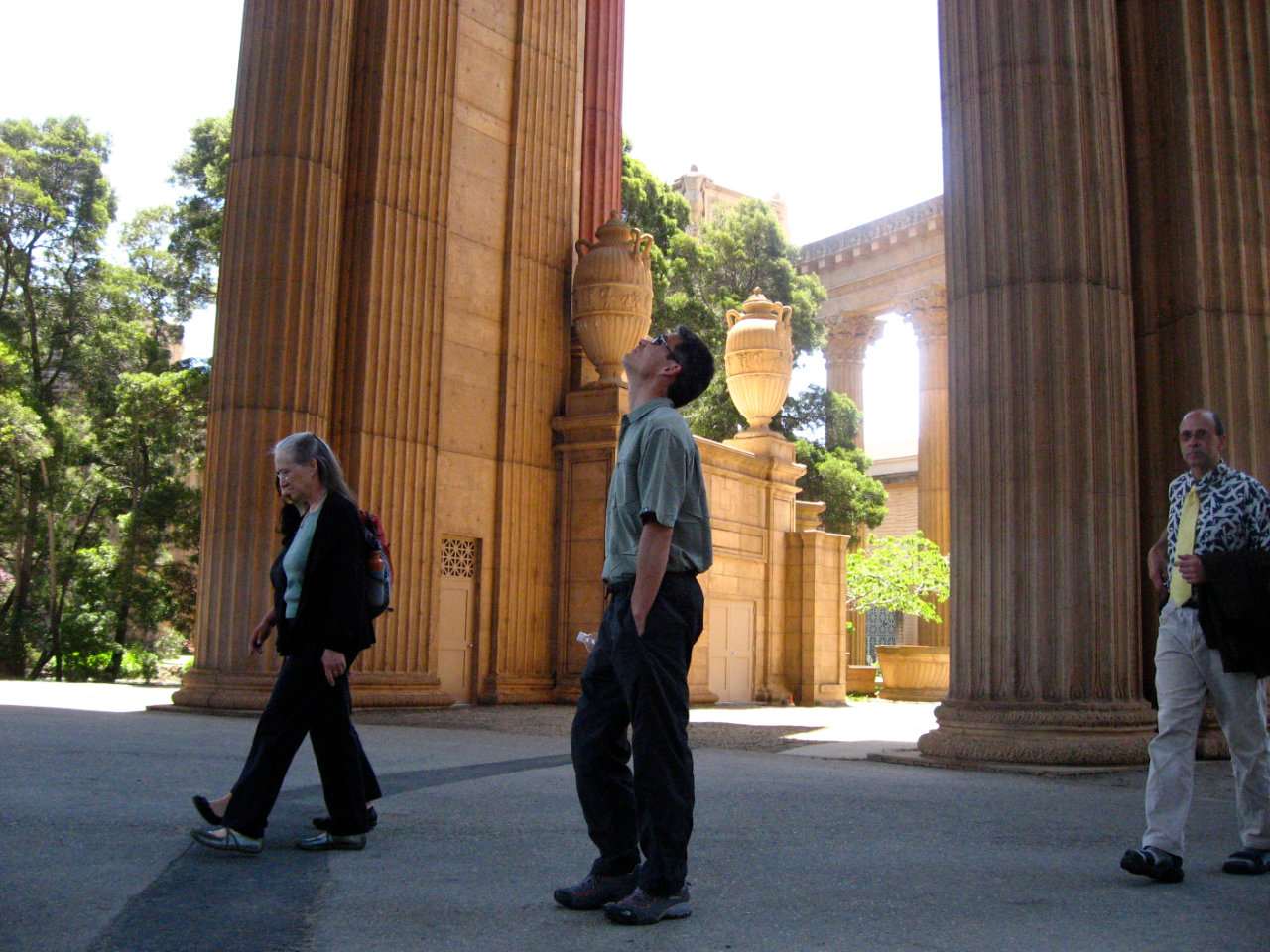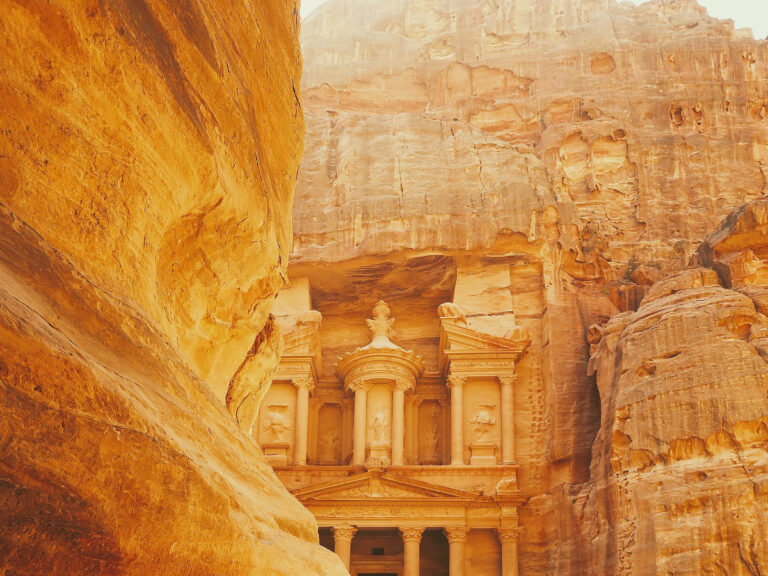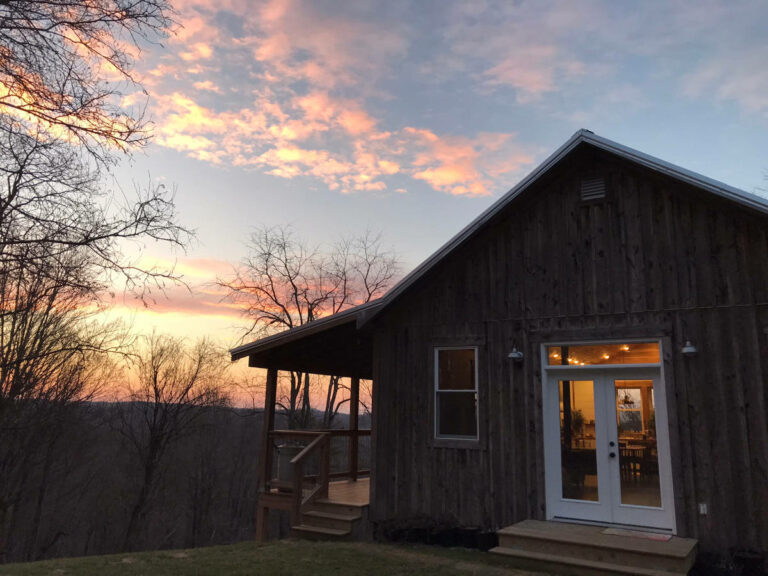In an amazing city like San Francisco, with its great restaurants and clubs, its museums and landmarks, its gorgeous parks and infamous parades, it’s striking how alone one can feel. Things like having no one to call to help you change a weird halogen light bulb or to help you move add up over time. And being sick, big sick, in the city strikes a chord like few things do.
You do learn, as an urban dweller, to use pay-for-hire services, like grocery and pharmacy delivery, taxis and car services. But these don’t take the place of an impromptu house call with a comforting meal, your missed dry cleaning, and a half hour whirl through the kitchen to make it sparkle when you’re lying sick in bed.
Of course, it wasn’t really city living in the end that got me down, but my lack of community there.
But what is community? This term gets bandied around a lot these days as we redefine community in the digital age, nostalgic for the communities of small scale most of us have lost, and craving something we can’t quite name.
Of all the definitions for community I’ve seen, I like the scientific one the best:
“A group of organisms or populations living and interacting with one another in a particular environment. The organisms in a community affect each other’s abundance, distribution, and evolutionary adaptation. Depending on how broadly one views the interaction between organisms, a community can be small and local, as in a pond or tree, or regional or global, as in a biome.” (American Heritage Science Dictionary).
The way I read this, when I am in community with you, your welfare matters to me because it directly impacts me. And I know I mean the same to you. Whether you live down the street or across the world from me, I will reach across the divide to lend a hand, and I know you will do the same.
Signs of Community
When I moved to downtown Floyd in 2011 (nearby to my old hometown), I didn’t even have to ask for help moving. They asked me when I was moving, planned their weekend around it, and some I hadn’t even asked showed up to help. When the new kitchen table and chairs I bought turned out to need extensive assembly, a friend volunteered to come over two nights in a row to help me put it together, bringing tools and a housewarming gift for my kitchen.
The thing is, if I hadn’t had these cheerfully wonderful volunteers organizing me to move, I had so many other people I could have called. Between all the people I know from my decades-long roots here and the distant acquaintances who just seem generally more disposed to pitch in and help out a neighbor in need, I feel firmly held in community.
Some other observations of community:
My brother let me crash with him for free for a year while I got over the stunned realization that I’d spent $120K on an education for a profession I couldn’t bear to practice.
When I told a co-worker that I’d found my own apartment, she didn’t say, “Oh, that’ll be good for you.” Instead, she asked, “Well if you don’t mind my asking, what is your brother going to do without you?”
When I thanked my brother for “saving my hide,” he got misty-eyed and said, “It was a two-way street.” He was recently divorced when I moved in, and sorting out life on his own for the first time in ten years.
I’ve had a quote rattling around in my mind trying to understand why I’m here in rural Appalachia, and these reflections on community tug on some of those same threads:
“If you have come here to help me, you are wasting your time. But if you have come because your liberation is bound up with mine, then let us work together.”
Lilla Watson
Photos from San Francisco
I wanted to share these because, well, I can. Facebook made me take down some of the Bay to Breakers photos – but some sights are meant to be seen! These are all from the day I graduated from graduate school in 2009.
